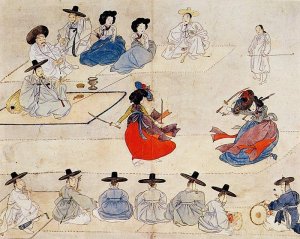Most dramatic works focus on the actions of individuals. Characters make good or bad decisions, and their choices drive the plot. While this makes for compelling storytelling, it ignores the role of larger social structures in driving those choices. What makes Stranger 2 so remarkable is the way it foregrounds these structures, exploring how they can override and corrupt individual agency. It looks at what happens when the rot is not the result of a few bad apples but something baked into institutional cultures and explores how even the most upright people end up making moral compromises in order to function. While the show never excuses those who exploit these structures for personal gain, it argues that systemic problems can only be solved by building better systems. It’s smart enough though to acknowledge that organizations will always be as fallible as the humans who create them, and that “better” will never equal perfect.
From a storytelling perspective, the show starts slowly, spending the first several hours on seemingly trivial details. However, things pick up around episode 6 and the disparate narrative threads come together into a compelling whole. Its focus on the power struggles within Korean law enforcement recognizes that how a society pursues justice ultimately determines whether or not it will obtain it. Heroic cops and prosecutors like Yeo Jin and Shi Mok are great, but they are only as effective as the institutions they represent.
From a storytelling perspective, the show starts slowly, spending the first several hours on seemingly trivial details. However, things pick up around episode 6 and the disparate narrative threads come together into a compelling whole. Its focus on the power struggles within Korean law enforcement recognizes that how a society pursues justice ultimately determines whether or not it will obtain it. Heroic cops and prosecutors like Yeo Jin and Shi Mok are great, but they are only as effective as the institutions they represent.
Vond je deze recentie nuttig?

























